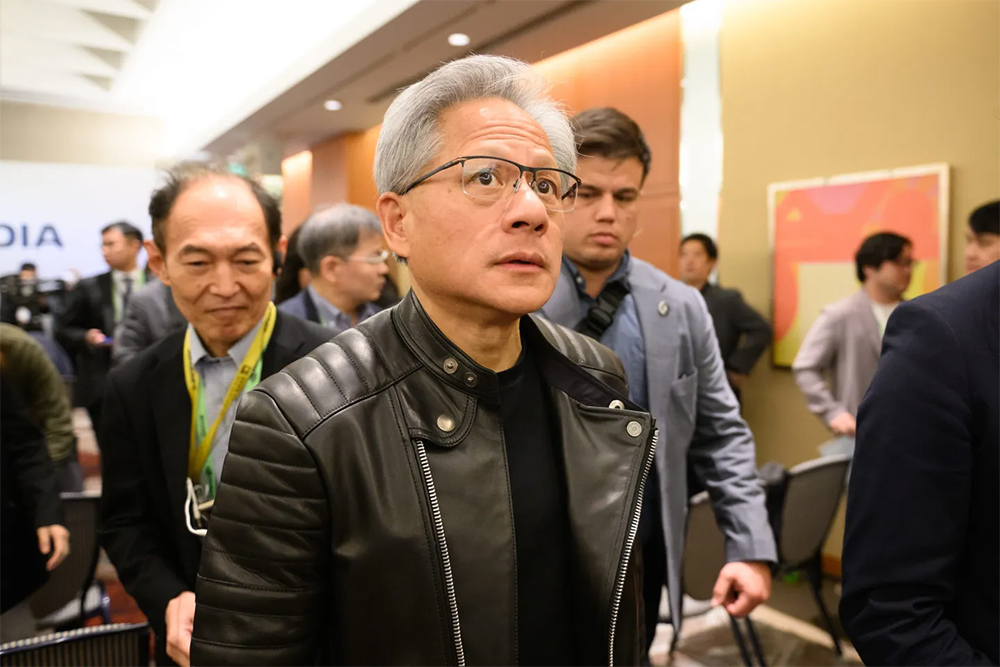
周三,美国最高法院似乎可能继续受理一项针对英伟达(Nvidia)的集体诉讼。该诉讼指控,英伟达涉嫌隐瞒来自波动较大的加密货币挖矿领域的芯片销售收入,误导了投资者。
法官们审理了该科技公司对下级法院的裁决提起的上诉。该裁决允许一家瑞典投资管理公司在2018年提起的诉讼继续进行。
这是在高等法院涉及科技公司的两起集体诉讼案件之一。上周,法官们讨论了是否停止一项针对Facebook母公司Meta的投资者集体诉讼。这起诉讼的金额高达数十亿美元,源于涉及政治咨询公司剑桥分析(Cambridge Analytica)的隐私丑闻。
周三,包括自由派和保守派法官在内的多数法官似乎驳回了英伟达(总部位于加州圣克拉拉)律师尼尔·凯泰尔提出的主张。
艾琳娜·卡根法官表示:“我们越来越不确定,为什么要受理这个案件,以及英伟达在本案中胜诉的理由是什么。”
在该起诉讼之前,加密货币的盈利能力下降,导致英伟达的收入不及预期,使公司股价下跌28%。
2022年,美国证券交易委员会(Securities and Exchange Commission)指控英伟达未能披露加密挖矿是其图形处理单元销售收入增长的重要来源,英伟达为此支付了550万美元的罚款,就该项指控达成和解。这些图形芯片本是作为游戏芯片生产和销售。英伟达并未在和解协议中承认存在任何不当行为。
随着科技巨头继续斥巨资购买英伟达的芯片和建设数据中心,以训练和运行各自的人工智能系统,英伟达引领了人工智能领域的发展,成为美股市值最高的公司之一。
在芯片制造领域的主导地位,巩固了英伟达作为人工智能热潮代表的地位。英伟达CEO黄仁勋称当前的人工智能热潮是“下一次工业革命”。过去一年,对能够撰写文档、生成图像和充当个人助理的生成式AI产品的需求,推动了英伟达专业芯片的销售。
英伟达是标普500指数最有价值的公司之一,市值超过3万亿美元。英伟达将于下周公布第三季度财报。
在最高法院的案件中,英伟达主张法院应该驳回投资者的诉讼,因为这起诉讼不符合1995年通过的《私人证券诉讼改革法》(Private Securities Litigation Reform Act),该法案旨在防止无根据的诉讼。
一名地方法院法官曾驳回该起诉讼,但旧金山联邦上诉法院后来裁定该诉讼可以继续进行。拜登政府表示支持投资者。
预计最高法院将在明年初夏做出裁决。(财富中文网)
译者:刘进龙
审校:汪皓
周三,美国最高法院似乎可能继续受理一项针对英伟达(Nvidia)的集体诉讼。该诉讼指控,英伟达涉嫌隐瞒来自波动较大的加密货币挖矿领域的芯片销售收入,误导了投资者。
法官们审理了该科技公司对下级法院的裁决提起的上诉。该裁决允许一家瑞典投资管理公司在2018年提起的诉讼继续进行。
这是在高等法院涉及科技公司的两起集体诉讼案件之一。上周,法官们讨论了是否停止一项针对Facebook母公司Meta的投资者集体诉讼。这起诉讼的金额高达数十亿美元,源于涉及政治咨询公司剑桥分析(Cambridge Analytica)的隐私丑闻。
周三,包括自由派和保守派法官在内的多数法官似乎驳回了英伟达(总部位于加州圣克拉拉)律师尼尔·凯泰尔提出的主张。
艾琳娜·卡根法官表示:“我们越来越不确定,为什么要受理这个案件,以及英伟达在本案中胜诉的理由是什么。”
在该起诉讼之前,加密货币的盈利能力下降,导致英伟达的收入不及预期,使公司股价下跌28%。
2022年,美国证券交易委员会(Securities and Exchange Commission)指控英伟达未能披露加密挖矿是其图形处理单元销售收入增长的重要来源,英伟达为此支付了550万美元的罚款,就该项指控达成和解。这些图形芯片本是作为游戏芯片生产和销售。英伟达并未在和解协议中承认存在任何不当行为。
随着科技巨头继续斥巨资购买英伟达的芯片和建设数据中心,以训练和运行各自的人工智能系统,英伟达引领了人工智能领域的发展,成为美股市值最高的公司之一。
在芯片制造领域的主导地位,巩固了英伟达作为人工智能热潮代表的地位。英伟达CEO黄仁勋称当前的人工智能热潮是“下一次工业革命”。过去一年,对能够撰写文档、生成图像和充当个人助理的生成式AI产品的需求,推动了英伟达专业芯片的销售。
英伟达是标普500指数最有价值的公司之一,市值超过3万亿美元。英伟达将于下周公布第三季度财报。
在最高法院的案件中,英伟达主张法院应该驳回投资者的诉讼,因为这起诉讼不符合1995年通过的《私人证券诉讼改革法》(Private Securities Litigation Reform Act),该法案旨在防止无根据的诉讼。
一名地方法院法官曾驳回该起诉讼,但旧金山联邦上诉法院后来裁定该诉讼可以继续进行。拜登政府表示支持投资者。
预计最高法院将在明年初夏做出裁决。(财富中文网)
译者:刘进龙
审校:汪皓
The Supreme Court on Wednesday seemed likely to keep alive a class-action lawsuit accusing Nvidia of misleading investors about its dependence on selling computer chips for the mining of volatile cryptocurrency.
The justices heard arguments in the tech company’s appeal of a lower-court ruling allowing a 2018 suit led by a Swedish investment management firm to continue.
It’s one of two high court cases involving class-action lawsuits against tech companies. Last week, the justices wrestled with whether to shut down a multibillion-dollar class action investors’ lawsuit against Facebook parent Meta stemming from the privacy scandal involving the Cambridge Analytica political consulting firm.
On Wednesday, a majority of the court that included liberal and conservative justices appeared to reject the arguments advanced by Neal Katyal, the lawyer for Santa Clara, California-based Nvidia.
“It’s less and less clear why we took this case and why you should win it,” Justice Elena Kagan said.
The lawsuit followed a dip in the profitability of cryptocurrency, which caused Nvidia’s revenues to fall short of projections and led to a 28% drop in the company’s stock price.
In 2022, Nvidia paid a $5.5 million fine to settle charges by the Securities and Exchange Commission that it failed to disclose that cryptomining was a significant source of revenue growth from the sale of graphics processing units that were produced and marketed for gaming. The company did not admit to any wrongdoing as part of the settlement.
Nvidia has led the artificial intelligence sector to become one of the stock market’s biggest companies, as tech giants continue to spend heavily on the company’s chips and data centers needed to train and operate their AI systems.
That chipmaking dominance has cemented Nvidia’s place as the poster child of the artificial intelligence boom — what CEO Jensen Huang has dubbed “the next industrial revolution.” Demand for generative AI products that can compose documents, make images and serve as personal assistants has fueled sales of Nvidia’s specialized chips over the last year.
Nvidia is among the most valuable companies in the S&P 500, worth over $3 trillion. The company is set to report its third quarter earnings next week.
In the Supreme Court case, the company is arguing that the investors’ lawsuit should be thrown out because it does not measure up to a 1995 law, the Private Securities Litigation Reform Act, that is intended to bar frivolous complaints.
A district court judge had dismissed the complaint before the federal appeals court in San Francisco ruled that it could go forward. The Biden administration is backing the investors.
A decision is expected by early summer.






